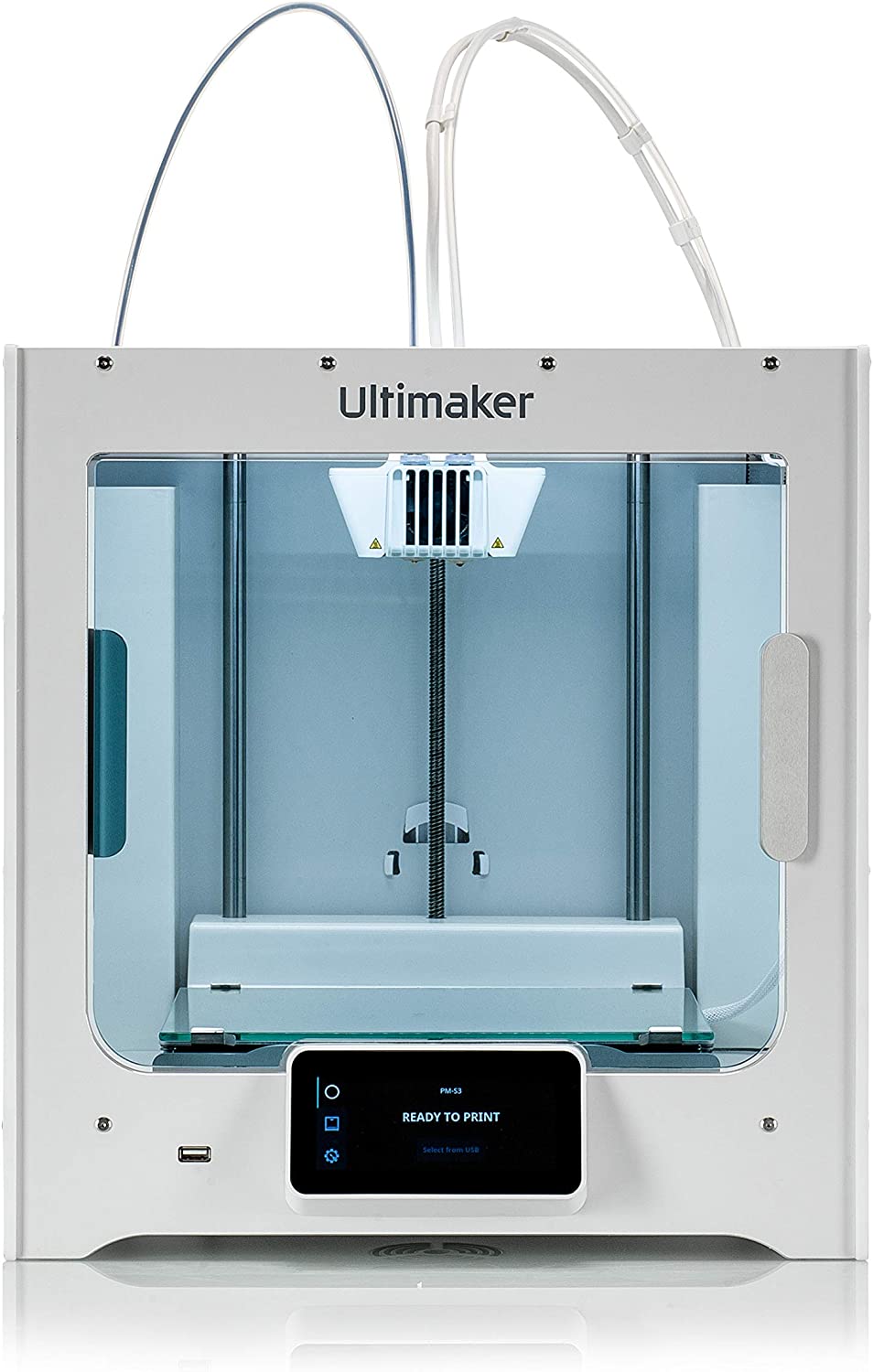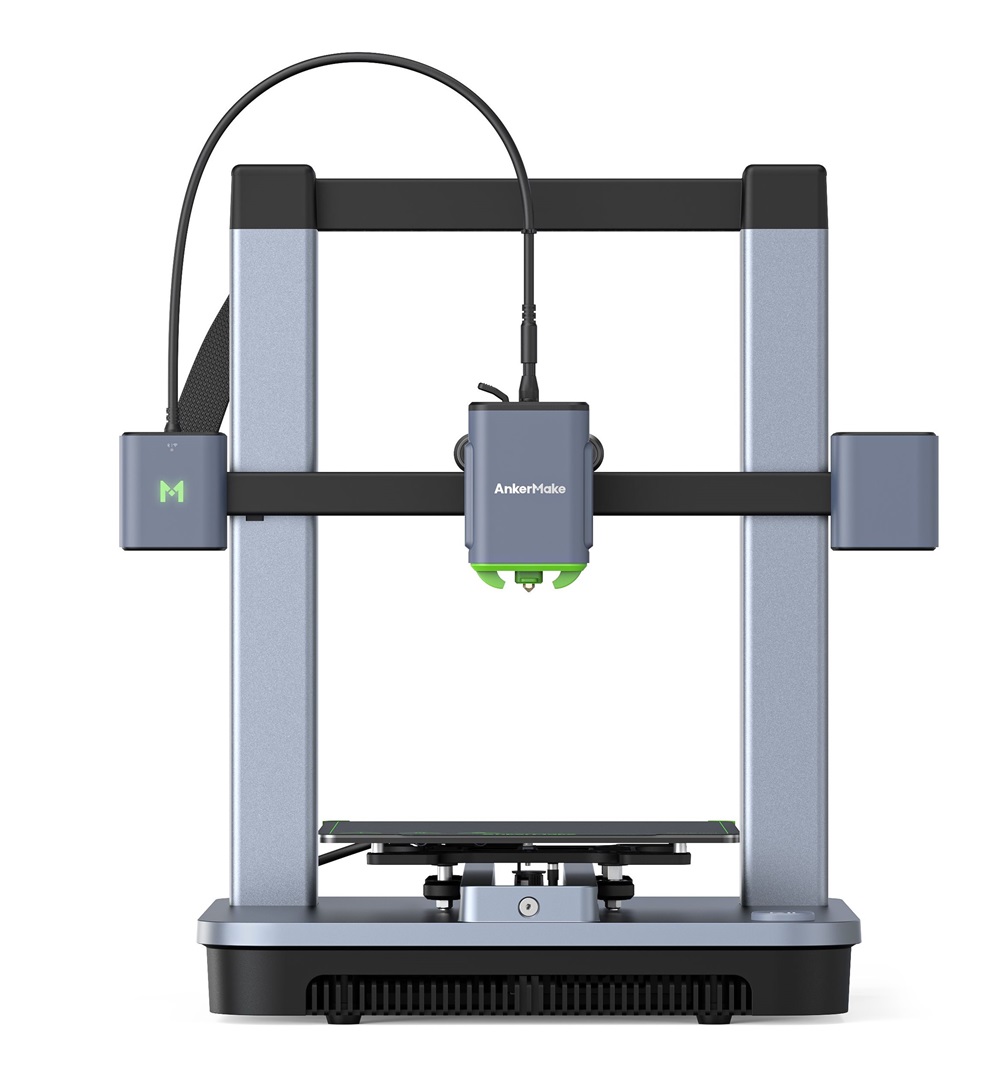Compare S5 vs M5C
Comparison between the best 3D printers
Choose the best 3D printer at the best price. The cheapest 3D printers are here.
Buy a 3D printer here with 3D Fila.
 |
 |
|
| Model | S5 |
M5C[BUY M5C] |
| Printing Material | Filament | Filament |
| Buy Filament for Ultimaker S5 | Buy Filament forAnkerMake M5C | |
| Estimated price | $6950,00 | $399,00 |
| Manufacturer | Ultimaker | AnkerMake |
| Release Year | 2021 | 2023 |
| Print Volume [mm] | 330x340x300 | 220x220x250 |
| Printer Size [mm] | 495x585x780 | 466x374x480 |
| Weight [kg] | 20,6 | 9,6 |
| Power Loss Recovery | YES | YES |
| Enclosed printer | YES | NO |
| Bed Leveling | Automatic | Automatic |
| Filament End Sensor | YES | YES |
| Bed type | Heated | Heated |
| Power supply system | Bowden | Direct Drive |
| Standard nozzle | 0,4 | 0,4 |
| Maximum Nozzle Temperature [°C] | 280 | 300 |
| Maximum Bed Temperature [°C] | 140 | 100 |
| Maximum printing speed [mm/s] | 80 | 500 |
| Filament holder | YES | YES |
| Camera for supervision | YES | YES |
| Recommended filaments | PLA, ABS, PETG, PC, Nylon, Tritan | PLA, PETG, TPU, ABS, PA, PLA-CF, PETG-CF, PA-CF |
| Recommended slicers | Cura | AnkerMake Studio (macOS, Windows), Simplify3D, Ultimaker Cura, PrusaSlicer |
| Maximum Resolution [mm] | 0,1 | 0,1 |
| Processor | ||
| Display | Display touchscreen 4,7'' | |
| Power Supply | 110/220V / 500W | 350 W |
| Connectivity | USB / Wi-Fi | Wi-Fi, USB-C, Bluetooth |
| Operating systems | Windows, Mac, Linux | Windows, Linux e Macbook |
| Date of registration in the system | 2022-11-08 | 2024-09-11 |
| Release date | 2021 | 2023 |
| Extra features | The Ultimaker S5 stands out for its easy loading and unloading of materials, automatic bed leveling and excellent print quality with resolutions from 60 to 400 microns. It has dual extruders, interchangeable print cores, advanced connectivity with Wi-Fi and LAN, and intuitive software. It includes a Wi-Fi camera for monitoring, a removable glass bed, and a large build volume, making it ideal for professional and creative environments. | The AnkerMake M5 printer stands out for its impressive print speed, reaching up to 500mm/s. It features AI print monitoring, an integrated camera for creating timelapses, auto-leveling bed with pressure sensor, direct extruder, flexible PEI-coated build plate, and Wi-Fi and USB-C connectivity. Assembly is quick and easy, and the printer is designed to deliver high print quality and ease of use. |
| Support for multiple colors and materials (AMS and CFS) | NO | NO |
Notes * |
||
| Cost-benefit | 2 / 10 | 7 / 10 |
| Hardware | 3.6 / 10 | 3.2 / 10 |
| Tela | . | . |
| Print volume | 4 / 10 | 3 / 10 |
| Performance | 1 / 10 | 4 / 10 |
| [BUY M5C] |
Conclusion |
| In comparing the Ultimaker S5 and the AnkerMake M5C, it becomes clear that each printer caters to different needs and budgets in the 3D printing market. The Ultimaker S5, while significantly higher in price, offers a larger print volume, robust build quality, and features ideal for professional users. Its capabilities such as dual extruders, advanced connectivity options, and superior print quality underline its value for those who prioritize reliability and versatility in materials. The enclosed construction also ensures better control over print conditions, which can be crucial for certain materials. On the other hand, the AnkerMake M5C excels in speed and affordability, making it an attractive option for hobbyists and newcomers to 3D printing. Its innovative features, such as AI print monitoring and a user-friendly design, promote an enjoyable printing experience without the steep investment. Despite a smaller build volume and fewer advanced features compared to the Ultimaker S5, the M5C offers impressive print speeds and a satisfactory resolution for most projects. Ultimately, the choice between the two boils down to the intended use and budget constraints. For professionals and serious enthusiasts who require a high-capacity printer with advanced features, the Ultimaker S5 justifies its higher price. Conversely, for casual users and those looking for a more accessible entry into 3D printing, the AnkerMake M5C provides an excellent balance of performance, ease of use, and cost-effectiveness. |

